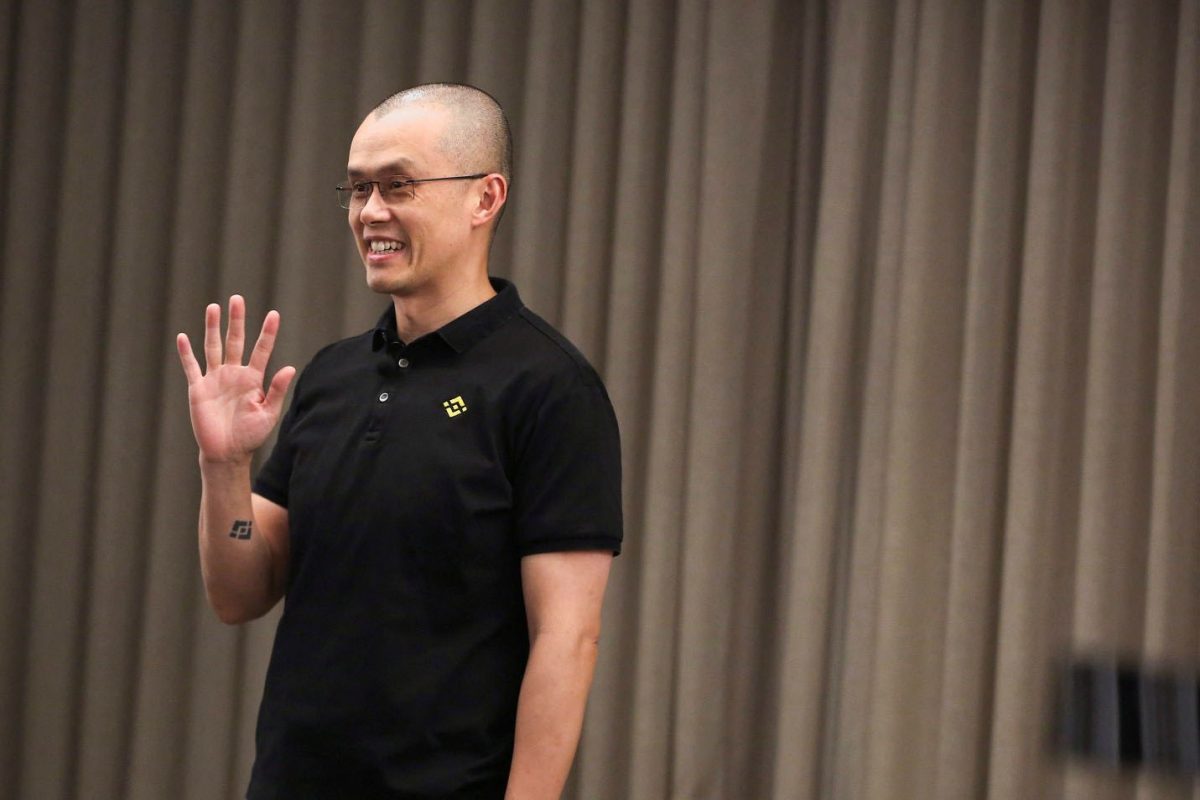NEW YORK, (Reuters) – Binance chief Changpeng Zhao stepped down and pleaded guilty to breaking U.S. anti-money laundering laws as part of a $4.3 billion settlement resolving a years-long probe into the world’s largest crypto exchange, prosecutors said on Tuesday.
The deal, which will see Zhao personally pay $50 million, was described by prosecutors as one of the largest corporate penalties in U.S. history. It is another blow to the crypto industry that has been beset by investigations and comes on the heels of the recent fraud conviction of FTX founder Sam Bankman-Fried.
But several legal experts said it was a good outcome for Zhao, leaving his vast wealth intact and allowing him to retain his stake in Binance, the exchange he founded in 2017.
Binance broke U.S. anti-money laundering and sanctions laws and failed to report more than 100,000 suspicious transactions with organizations the U.S. described as terrorist groups including Hamas, al Qaeda and the Islamic State of Iraq and Syria, authorities said.
The exchange also never reported transactions with websites devoted to selling child sexual abuse materials and was one of the largest recipients of ransomware proceeds, they said.
“Binance made it easy for criminals to move their stolen funds and illicit proceeds on its exchanges,” U.S. Attorney General Merrick Garland said on Tuesday. “Binance also did more than just fail to comply with federal law. It pretended to comply.”
Some of the charges, which are both criminal and civil, relate to practices that Reuters reported first in a series of articles in 2022.
The Justice Department, which negotiated the settlement with the Commodity Futures Trading Commission (CFTC) and the Treasury Department, is seeking an 18-month prison sentence for Zhao, the maximum suggested under federal guidelines, the New York Times reported.
Binance’s former chief compliance officer Samuel Lim was charged by the CFTC, the agency said. Neither Lim nor his lawyers responded to requests for comment.
Binance will pay $1.81 billion within 15 months, and a further $2.51 billion forfeiture as part of the deal, prosecutors said.
Zhao, a billionaire, was born in China and moved to Canada at the age of 12. He pleaded guilty in a Seattle court on Tuesday afternoon.
“Today, I stepped down as CEO of Binance,” Zhao said on social media after the settlement was announced. “Admittedly, it was not easy to let go emotionally. But I know it is the right thing to do. I made mistakes, and I must take responsibility. This is best for our community, for Binance, and for myself.”
While authorities have probed Zhao and Binance for years, Zhao’s exit marks a dramatic development for one of the most powerful figures in the crypto industry, and for Binance. The deal raises questions over the future of the crypto exchange, which he has tightly controlled.
Richard Teng, a longtime Binance executive, will take over at Binance, Zhao said in his post.
“These resolutions acknowledge our company’s responsibility for historical, criminal compliance violations, and allow our company to turn the page,” Binance said in a statement.
In a separate statement, Teng said that his focus would be on “reassuring users that they can remain confident in the financial strength, security and safety of the company.”
Vanderbilt University law professor Yesha Yadav said while the fine was extremely large it appeared manageable for Binance.
“This deal…looks designed to give Binance the chance to live another day, while removing CZ, a figurehead who has been so intrinsically linked to the growth of a business model,” she said.
Since Zhao appears to be retaining his stake in Binance, however, it’s possible he may still be able to exert influence on the company, Yadav added.
Zhao is worth $10.2 billion, according to Forbes.
Given the seriousness of the violations and actors involved, Zhao appears to have “come out of this looking pretty good” as the U.S. government likely had to entice him to come to the U.S., said Robert Frenchman of Mukasey Frenchman LLP.
“He still has enormous wealth,” Frenchman said. “He isn’t likely to spend too much time in a U.S. jail. He retains his ownership stake in Binance, a company that has now resolved some of its biggest legal issues.”
Prosecutors likely weighed those benefits for Zhao against the possibility that he may not have otherwise surrendered and the desire to convince Binance to agree to pay a hefty sum, said Jeffrey Cohen, an assistant professor at Boston College Law School and former federal prosecutor.
“If you can get a good number for a corporate fine and the cost is that the individual defendants take a slightly lesser penalty, the government makes that calculation,” Cohen said.
Binance has been under the Justice Department’s scrutiny since at least 2018, Reuters reported last year, just one of a string of legal headaches it faces in the United States.
Federal prosecutors asked the company in December 2020 to provide internal records about its anti-money laundering efforts, along with communications involving Zhao.






